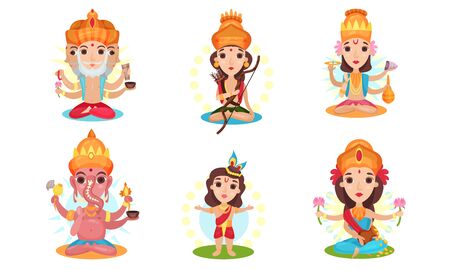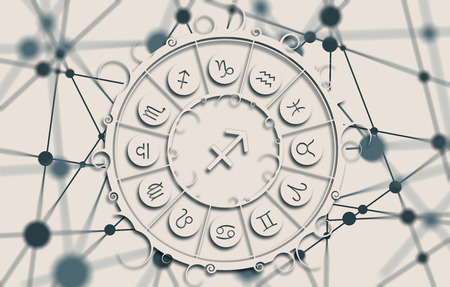Introduction: The Great Indian Marriage Debate
In India, marriage is not merely a personal decision but a sacred institution deeply woven into the fabric of society. For generations, families and communities have played an integral role in determining how marriages are solemnised. The debate between love marriage and arranged marriage is as vibrant and diverse as the country itself, sparking passionate discussions in every household—from bustling metros like Mumbai and Delhi to the quiet bylanes of small towns and villages. While love marriages are often seen as modern and driven by individual choice, arranged marriages uphold age-old traditions where families come together to find the perfect match based on compatibility, social status, and above all, astrological alignment. In both scenarios, the influence of zodiac signs and horoscopes cannot be underestimated, as they guide countless decisions and are considered essential for ensuring harmony, prosperity, and lifelong happiness in married life. Understanding this dynamic is crucial to appreciating why marriage—whether chosen by the heart or arranged by elders—remains one of the most significant milestones in Indian culture.
2. Arranged Marriages: Tradition, Family, and Zodiac Guidance
Arranged marriages are deeply woven into the fabric of Indian society, reflecting centuries-old traditions where family values and collective decision-making take precedence. Unlike love marriages, arranged alliances place immense emphasis on harmony between families, shared cultural backgrounds, and, crucially, astrological compatibility. In most Indian communities, before any formal engagement or wedding rituals commence, families consult astrologers to perform kundali matching—a process where the birth charts (janam kundalis) of the prospective bride and groom are meticulously compared.
The Role of Kundali Matching in Arranged Marriages
Kundali matching is not just a ritual; it is considered an essential step to ensure marital bliss and long-term prosperity. The process evaluates several factors such as Guna Milan (points system), Mangal Dosha (Mars effect), and planetary positions at birth. This careful analysis aims to predict compatibility in areas like temperament, health, financial stability, and progeny.
Key Elements Checked During Kundali Matching
| Element | Description | Importance in Marriage |
|---|---|---|
| Guna Milan | Scoring system based on 36 points that assesses compatibility across eight aspects (Ashtakoota) | A minimum score is often required for marriage approval |
| Mangal Dosha | Assessment of Mars placement in the horoscope which can affect marital harmony | If present, special rituals may be advised before proceeding with marriage |
| Nadi Dosh | Checks similarity of body constitution as per Ayurveda principles through zodiac signs | Nadi Dosh can lead to rejection or require remedial measures if detected |
| Dasha Sandhi | Analysis of transition periods between planetary cycles in both horoscopes | Aims to avoid turbulent phases coinciding for both individuals after marriage |
The Influence of Families and Astrologers
In the arranged marriage setup, families act as primary decision-makers. Their role extends from initial matchmaking based on social circles or matrimonial ads to overseeing kundali matching sessions. Astrologers are revered guides whose advice can seal or break a proposed alliance. Their interpretations are trusted not just for the couple’s compatibility but also for auspicious dates (muhurat) for ceremonies. This collective approach reflects the Indian value system where individual choices blend with astrological beliefs and familial wisdom to foster lasting unions.

3. Love Marriages: Modern Choices and Old Beliefs
In today’s India, love marriages are becoming increasingly common, especially in urban areas where young people have more freedom to choose their partners. While the traditional arranged marriage system still holds strong roots, modern couples are now making their own choices based on compatibility, shared interests, and mutual respect. However, even as these love marriages gain acceptance, many families and individuals continue to consider the influence of zodiac signs and astrology before tying the knot.
For many Indian youngsters, falling in love is seen as a bold step that challenges age-old customs. Yet, when it comes to formalising the relationship, cultural values often come into play. Parents may ask for kundali matching (horoscope matching) to ensure that the stars are aligned for a happy married life. Some couples themselves consult astrologers for reassurance, while others choose to ignore astrological advice altogether, believing that love can overcome any dosha or planetary obstacle.
The role of zodiac signs in love marriages is therefore complex. In some cases, they act as a bridge between modern romantic ideals and traditional beliefs. Even if a couple has chosen each other out of love, aligning their horoscopes can make it easier for families to accept the match. On the other hand, there are instances where strong astrological mismatches lead to family opposition or delay wedding plans.
In essence, while love marriages in India reflect changing times and growing individualism, astrology and zodiac signs remain woven into the fabric of decision-making for many families. This blend of new-age thinking with old-world customs is unique to Indian society and continues to shape how relationships evolve in the 21st century.
4. Zodiac Signs in Indian Matchmaking: Kundali Milaan Essentials
In the vibrant tapestry of Indian marriages, whether love or arranged, Kundali Milaan—the art and science of horoscope matching—holds an almost sacred place. This practice, deeply embedded in Indian culture, is not just a ritual; it is often considered a deciding factor in marriage alliances. While the urban youth may sometimes bypass this tradition in love marriages, for countless families across India, matching zodiac signs remains a crucial step before tying the knot.
The Cultural Significance of Kundali Milaan
At its heart, kundali milaan reflects the belief that planetary alignments at the time of birth can shape individual destinies and compatibility. Families seek astrologers to compare the horoscopes (kundalis) of prospective brides and grooms, regardless of whether the match was found through romance or family networks. The underlying idea is to ensure not just personal happiness but also prosperity, health, and harmony for both partners and their extended families.
Kundali Matching in Love vs Arranged Marriages
| Aspect | Arranged Marriage | Love Marriage |
|---|---|---|
| Emphasis on Kundali | Very High; often non-negotiable | Moderate to Low; may be overlooked if mutual consent is strong |
| Family Involvement | Extensive; elders drive the process | Varied; families might consult astrologers after couple decides |
| Pivotal Role of Astrologer | Centrally involved from start | Brought in as reassurance or compromise |
| Zodiac Compatibility Weightage | Critical for progressing alliance | Often secondary to emotional bond |
Why Kundali Milaan Carries So Much Weight?
This tradition’s strength lies in its promise of certainty in a world full of unpredictability. For many households, especially in North and Central India, favourable zodiac matching is seen as protection against marital discord and future misfortune. Even today, an otherwise “perfect” match might be called off if there are significant astrological mismatches such as manglik dosha or low guna milaan scores.
Yet, times are changing. While arranged marriages continue to depend heavily on kundali milaan, love marriages increasingly balance modern outlooks with respect for parental sentiments by consulting astrologers out of courtesy or cultural obligation. Thus, zodiac signs remain a bridge between age-old beliefs and evolving social realities within Indian matrimony.
5. Challenges and Changing Attitudes
The landscape of marriage in India is undergoing significant transformation, especially among the youth. With increasing exposure to global cultures, social media, and evolving career aspirations, many young Indians are starting to question traditional norms. The tension between love marriages and arranged marriages is more pronounced today than ever before. While arranged marriages still dominate in many communities—often with parents consulting astrologers to match kundalis (horoscopes)—there is a growing desire for personal choice and emotional compatibility.
Reflecting the Generation Gap
The generational divide is clear when it comes to attitudes toward astrology and matchmaking. Parents and elders often consider zodiac compatibility as non-negotiable, believing that planetary positions can ensure harmony and long-lasting relationships. In contrast, many youngsters view these beliefs as outdated or restrictive, preferring to focus on shared values, mutual respect, and attraction rather than solely relying on the stars.
Social Pressures vs. Individual Desires
Despite changing perspectives, societal pressure remains strong. Many families feel compelled to follow rituals and consult astrologers before finalizing a marriage alliance—whether love or arranged. Young couples may face resistance if their horoscopes do not align or if they wish to marry outside their caste or community. This can lead to stress, familial conflict, and even heartbreak.
The Urban-Rural Divide
The shift in attitudes is most visible in urban centers where education and exposure have fostered more liberal mindsets. However, in rural areas and smaller towns, traditional practices around arranged marriages and zodiac matching remain deeply rooted. Here, challenging astrological norms can sometimes mean defying family honor or local customs.
Ultimately, Indian society finds itself at a crossroads—balancing centuries-old traditions with modern ideals of love, partnership, and individual happiness. Whether one believes in the power of the stars or not, it is clear that the conversation around marriage is evolving rapidly among India’s youth, reflecting broader changes in cultural identity and priorities.
6. Conclusion: Blending Tradition with Modernity
India, with its vibrant tapestry of traditions and aspirations, stands at a fascinating crossroads where age-old customs and contemporary values intersect, especially in the realm of marriage. Whether it is love marriage or arranged marriage, the role of zodiac signs remains deeply embedded in Indian culture, often acting as a bridge between generations. Today’s youth are increasingly open to choosing their own partners, yet many still consult astrologers and respect family beliefs regarding kundali matching. This unique blend allows families to honour cultural rituals while also recognising individual preferences and compatibility. Ultimately, modern India is crafting its own narrative—one that respects the wisdom of tradition without ignoring the realities and desires of today’s world. By weaving together astrological guidance and personal choice, Indian society continues to evolve, ensuring that marriage remains both a sacred bond and a celebration of evolving values.


